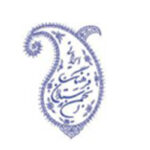The ascension of Bahá’u’lláh

A view of the Mansion of Bahjí, the Shrine of Bahá’u’lláh and the surrounding gardens. (Photo: Bahá’í World News Service)
Bahá’u’lláh passed away in the early hours of 29 May 1892 at the Mansion of Bahjí. Shoghi Effendi writes:
The news of His ascension was instantly communicated to Sulṭán ‘Abdu’l-Ḥamíd in a telegram which began with the words “the Sun of Bahá has set” and in which the monarch was advised of the intention of interring the sacred remains within the precincts of the Mansion, an arrangement to which he readily assented. Bahá’u’lláh was accordingly laid to rest in the northernmost room of the house which served as a dwelling-place for His son-in-law, the most northerly of the three houses lying to the west of, and adjacent to, the Mansion. His interment took place shortly after sunset, on the very day of His ascension.
The inconsolable Nabíl, who had had the privilege of a private audience with Bahá’u’lláh during the days of His illness; whom ‘Abdu’l‑Bahá had chosen to select those passages which constitute the text of the Tablet of Visitation now recited in the Most Holy Tomb; and who, in his uncontrollable grief, drowned himself in the sea shortly after the passing of his Beloved, thus describes the agony of those days: “Methinks, the spiritual commotion set up in the world of dust had caused all the worlds of God to tremble.… My inner and outer tongue are powerless to portray the condition we were in.… In the midst of the prevailing confusion a multitude of the inhabitants of ‘Akká and of the neighboring villages, that had thronged the fields surrounding the Mansion, could be seen weeping, beating upon their heads, and crying aloud their grief.”

The room in the Mansion of Bahjí where Bahá’u’lláh passed away in 1892. (Photo: Bahá’í World News Service)
For a full week a vast number of mourners, rich and poor alike, tarried to grieve with the bereaved family, partaking day and night of the food that was lavishly dispensed by its members. Notables, among whom were numbered Shí‘ahs, Sunnís, Christians, Jews and Druzes, as well as poets, ‘ulamás and government officials, all joined in lamenting the loss, and in magnifying the virtues and greatness of Bahá’u’lláh, many of them paying to Him their written tributes, in verse and in prose, in both Arabic and Turkish. From cities as far afield as Damascus, Aleppo, Beirut and Cairo similar tributes were received. These glowing testimonials were, without exception, submitted to ‘Abdu’l‑Bahá, Who now represented the Cause of the departed Leader, and Whose praises were often mingled in these eulogies with the homage paid to His Father.
And yet these effusive manifestations of sorrow and expressions of praise and of admiration, which the ascension of Bahá’u’lláh had spontaneously evoked among the unbelievers in the Holy Land and the adjoining countries, were but a drop when compared with the ocean of grief and the innumerable evidences of unbounded devotion which, at the hour of the setting of the Sun of Truth, poured forth from the hearts of the countless thousands who had espoused His Cause, and were determined to carry aloft its banner in Persia, India, Russia, ‘Iráq, Turkey, Palestine, Egypt and Syria.
With the ascension of Bahá’u’lláh draws to a close a period which, in many ways, is unparalleled in the world’s religious history. The first century of the Bahá’í Era had by now run half its course. An epoch, unsurpassed in its sublimity, its fecundity and duration by any previous Dispensation, and characterized, except for a short interval of three years, by half a century of continuous and progressive Revelation, had terminated. The Message proclaimed by the Báb had yielded its golden fruit. The most momentous, though not the most spectacular phase of the Heroic Age had ended. The Sun of Truth, the world’s greatest Luminary, had risen in the Síyáh-Chál of Ṭihrán, had broken through the clouds which enveloped it in Baghdád, had suffered a momentary eclipse whilst mounting to its zenith in Adrianople and had set finally in ‘Akká, never to reappear ere the lapse of a full millenium. God’s newborn Faith, the cynosure of all past Dispensations, had been fully and unreservedly proclaimed. The prophecies announcing its advent had been remarkably fulfilled. Its fundamental laws and cardinal principles, the warp and woof of the fabric of its future World Order, had been clearly enunciated. Its organic relation to, and its attitude towards, the religious systems which preceded it had been unmistakably defined. The primary institutions, within which an embryonic World Order was destined to mature, had been unassailably established. The Covenant designed to safeguard the unity and integrity of its world-embracing system had been irrevocably bequeathed to posterity. The promise of the unification of the whole human race, of the inauguration of the Most Great Peace, of the unfoldment of a world civilization, had been incontestably given. The dire warnings, foreshadowing catastrophes destined to befall kings, ecclesiastics, governments and peoples, as a prelude to so glorious a consummation, had been repeatedly uttered. The significant summons to the Chief Magistrates of the New World, forerunner of the Mission with which the North American continent was to be later invested, had been issued. The initial contact with a nation, a descendant of whose royal house was to espouse its Cause ere the expiry of the first Bahá’í century, had been established. The original impulse which, in the course of successive decades, has conferred, and will continue to confer, in the years to come, inestimable benefits of both spiritual and institutional significance upon God’s holy mountain, overlooking the Most Great Prison, had been imparted. And finally, the first banners of a spiritual conquest which, ere the termination of that century, was to embrace no less than sixty countries in both the Eastern and Western hemispheres had been triumphantly planted.
– Shoghi Effendi, God Passes By, Chapter 13.
Category: Quotations








